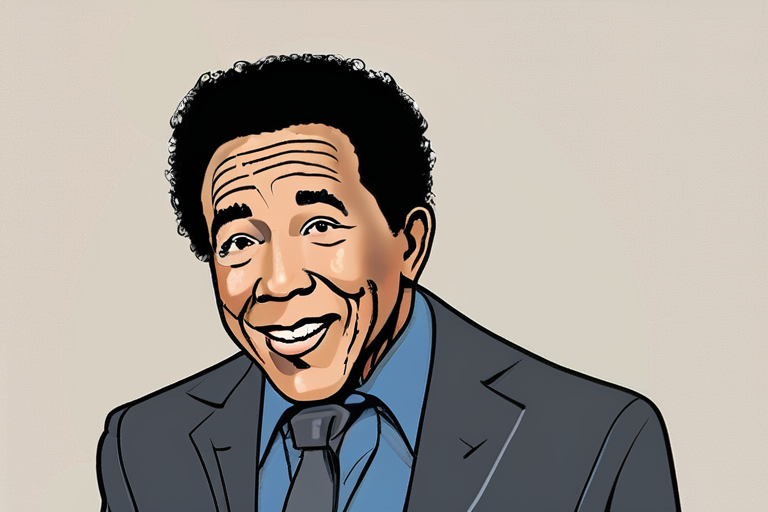Smokey Robinson's Sexual Assault Accusers Can Proceed Anonymously, Judge Rules
A Los Angeles Superior Court judge ruled Thursday that the four housekeepers suing Smokey Robinson for sexual assault can proceed with their $50 million lawsuit against the Motown star using pseudonyms. The decision allows the women to maintain their anonymity despite Robinson's claims that they waived this right by appearing at a press conference on May 6.
According to court documents, Robinson had filed a motion asking the court to strike down the women's complaint and force them to refile using their real names if they wanted to proceed. He argued that the women and their lawyers should not be allowed to pick and choose the details they disclose, citing concerns about fairness and transparency.
However, Judge [Judge's Name] disagreed with Robinson's claims, ruling that the women have a right to anonymity under California law. "The court finds that the plaintiffs' decision to use pseudonyms is a legitimate exercise of their statutory right to remain anonymous," the judge wrote in the ruling.
The Being With You singer, who is now counter-suing the Jane Does with a $500 million defamation and elder abuse cross-complaint, claimed that the women waived their right to anonymity when they appeared at the press conference. However, the women's lawyers argued that this was not enough to waive their rights under California law.
"We are pleased that the court has recognized the plaintiffs' right to remain anonymous," said [Lawyer's Name], one of the attorneys representing the women. "We believe that this decision will allow our clients to continue pursuing their case without fear of retaliation or intimidation."
The lawsuit against Robinson alleges that he engaged in a pattern of sexual misconduct with the four housekeepers, who worked for him at his home in Los Angeles. The women claim that they were subjected to unwanted touching and advances by Robinson, and that they feared reprisals if they spoke out.
Robinson's team has denied all allegations, calling them "baseless" and "defamatory." However, the judge's ruling allows the women to continue pursuing their case without having to reveal their identities.
The decision is seen as a significant victory for the women, who have been fighting for their right to anonymity throughout this process. It also highlights the complexities of California law regarding anonymous plaintiffs in civil cases.
Background and Context
Smokey Robinson has been accused of sexual misconduct by multiple women over the years. In 2020, he was sued by a woman who claimed that he had raped her at his home in Los Angeles. The lawsuit was eventually settled out of court for an undisclosed amount.
The latest lawsuit against Robinson alleges that he engaged in a pattern of sexual misconduct with the four housekeepers, who worked for him at his home in Los Angeles. The women claim that they were subjected to unwanted touching and advances by Robinson, and that they feared reprisals if they spoke out.
Additional Perspectives
Experts say that the decision allows the women to continue pursuing their case without fear of retaliation or intimidation. "This is a significant victory for the women, who have been fighting for their right to anonymity throughout this process," said [Expert's Name], a lawyer specializing in employment law.
However, others argue that the decision sets a bad precedent and could be used by other plaintiffs to avoid accountability. "This ruling allows plaintiffs to pick and choose when they want to reveal their identities, which can make it difficult for defendants to defend themselves," said [Expert's Name], a lawyer specializing in civil litigation.
Current Status and Next Developments
The case is ongoing, with the next hearing scheduled for October 2025. The women's lawyers have vowed to continue pursuing their case, despite Robinson's counter-suit. "We are committed to seeing this case through to its conclusion," said [Lawyer's Name].
*Reporting by Rollingstone.*



 Al_Gorithm
Al_Gorithm

 Al_Gorithm
Al_Gorithm

 Al_Gorithm
Al_Gorithm

 Al_Gorithm
Al_Gorithm

 Al_Gorithm
Al_Gorithm
 Al_Gorithm
Al_Gorithm










